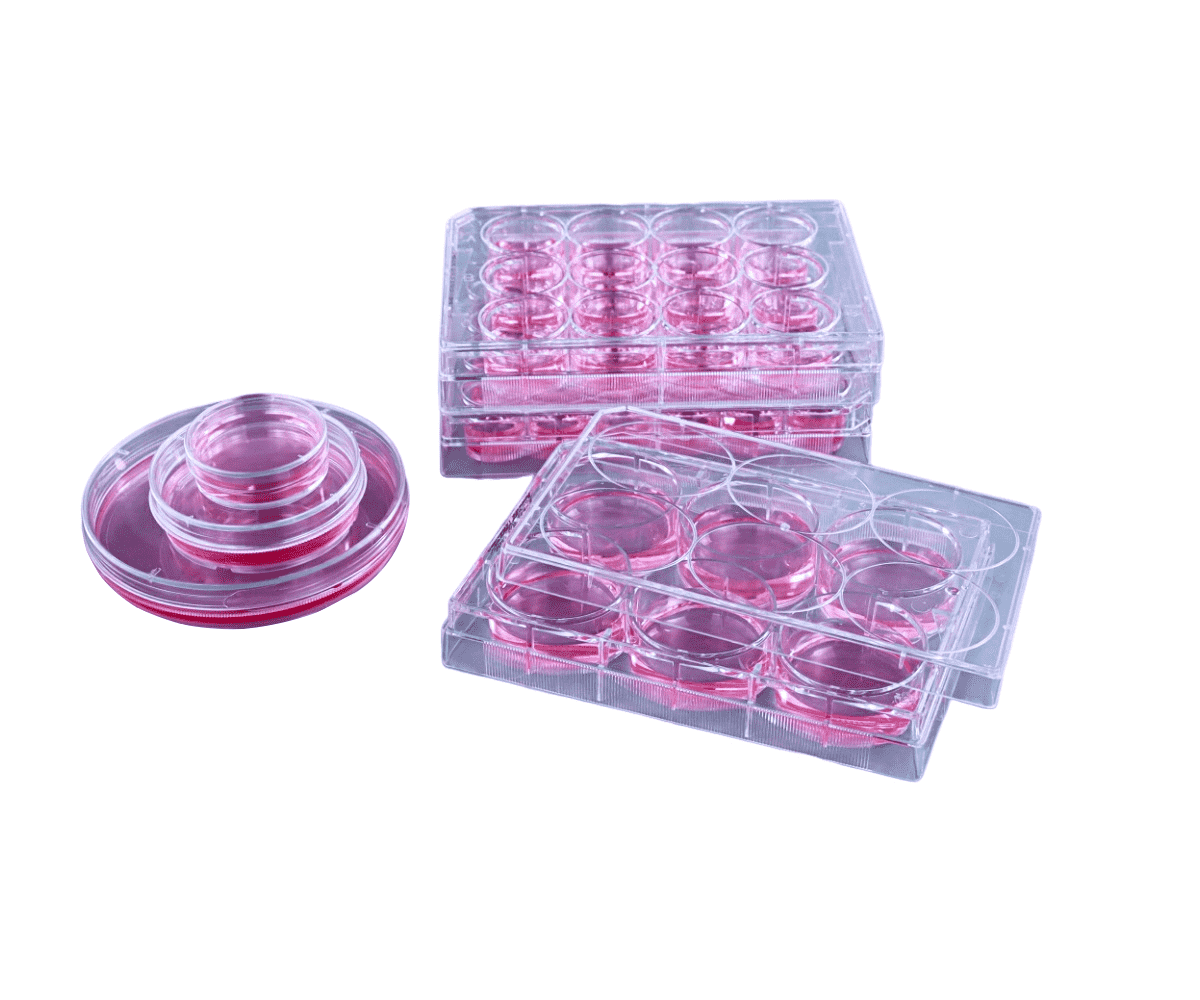- Home page
- Product Catalog
- Poly-D-Lysine-coated Products
Poly-D-Lysine-coated Products
Poly-D-Lysine serves as a positively charged extracellular matrix, fostering nonspecific cell attachment. Upon application to solid-phase culture surfaces, it heightens the electrostatic interaction between negatively charged ions on the cell membrane surface and positively charged ions on the culture surface. This enhancement bolsters cell attachment rates in serum-free or low-serum culture settings and reinforces the absorption of serum proteins and extracellular matrix proteins onto the culture surface.
Property
GVS Poly-D-Lysine-coated Products are available in a variety of forms, including culture plates and dishes. The product surface is pre-coated with Poly-D-lysine, which facilitates the attachment growth, proliferation and differentiation of cells that are difficult to culture, such as neurons, glial cells and transfected cell lines.
Characteristics
- Poly-D-Lysine-coated culture plates
- 6-well, 12-well and 24-well
- Poly-D-Lysine-coated culture dishes
- 35 mm, 60 mm and 90 mm
Features
- Utilizing premium poly-D-lysine characterized by a molecular weight ranging from 75 to 150 kDa, boasting high viscosity and robust cell attachment properties
- Enhance the attachment, growth, and specialization of challenging cell types, such as neurons, in culture
- Synthetic poly-D-lysine aims to prevent the stimulation of biological activity resulting from the introduction of natural polymers, impurity proteins, and similar factors
- Following validation through diverse cell culture tests, the attachment rate of cells surpasses 90%, with the viability of attachment cells exceeding 95%
- We offer a range of pre-coated poly-D-lysine product forms ready for use, catering to diverse testing requirements of our customers
- Lot number of each package bag is printed to ensure quality traceability
Product Variants
Multiple versions of Poly-D-Lysine-coated Products are available.
Product Variants
6 available results
-
CELCUJGD040035A/
- Product Name
- Culture dish
- Specification
- 35mm
- Surface
- Poly-D-lysine Coated
- Sterile
- Y
- Qty./Bag
- 5
- Qty./Case
- 80
-
CELCUJGD040060A/
- Product Name
- Culture dish
- Specification
- 60mm
- Surface
- Poly-D-lysine Coated
- Sterile
- Y
- Qty./Bag
- 5
- Qty./Case
- 80
-
CELCUJGD040090A/
- Product Name
- Culture dish
- Specification
- 90mm
- Surface
- Poly-D-lysine Coated
- Sterile
- Y
- Qty./Case
- 5
- Qty./Case
- 80
-
CELCUJGP040006A/
- Product Name
- Culture plate
- Specification
- 6-well
- Surface
- Poly-D-lysine Coated
- Sterile
- Y
- Qty./Bag
- 1
- Qty./Case
- 60
-
CELCUJGP040012A/
- Product Name
- Culture plate
- Specification
- 12-well
- Surface
- Poly-D-lysine Coated
- Sterile
- Y
- Qty./Bag
- 1
- Qty./Case
- 60
-
CELCUJGP040024A/
- Product Name
- Culture plate
- Specification
- 24-well
- Surface
- Poly-D-lysine Coated
- Sterile
- Y
- Qty./Bag
- 1
- Qty./Case
- 60
